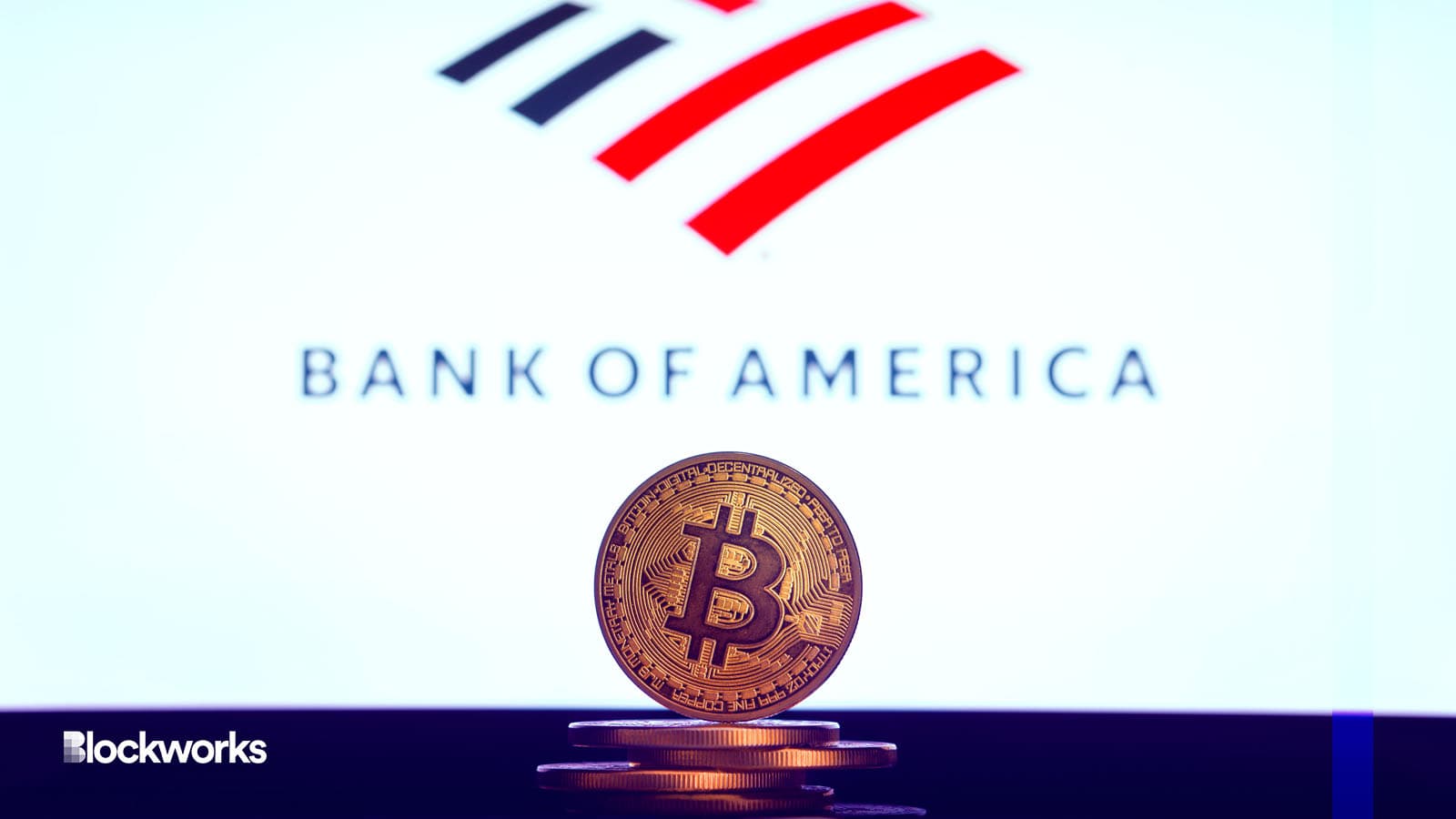Fidelity, Bank of America’s Indirect Exposure to Bitcoin Through MicroStrategy
Major financial institutions may not have an ETF – but they have MicroStrategy, which is strongly correlated with BTC

24kProductions/Shutterstock modified by Blockworks
Bank of America and Fidelity have been significant owners of MicroStrategy shares in recent months, suggesting continued institutional interest in indirect bitcoin exposures.
Bitcoin volatility has tapered off in recent weeks as crypto traders weigh the asset’s substantial bounceback in 2023 from last year’s lows.
Bank of America in a recent SEC disclosure was showing 86,147 MicroStrategy (MSTR) shares owned by one or more of the bank’s investment entities. Banks typically purchase stocks in these cases on behalf of clients and investors in active or passive strategies run out of an asset management arm
Fidelity, according to an SEC filing tracking stock purchases through year end 2022, snapped up 97,199 MSTR shares.
Both regulatory filings are not necessarily indicative of overall holdings for either company.
Shares of MicroStrategy (MSTR) have closely tracked the price of Bitcoin since the company began holding the digital currency as a reserve on its balance sheet. And scores of traders still view the stock as one of the closest publicly traded proxies for spot bitcoin exposures.
 BTC vs MSTR 2 year / Yahoo Finance
BTC vs MSTR 2 year / Yahoo Finance
Youwei Yang, chief economist at Bit Mining, told Blockworks in an interview that MicroStrategy continues to be known as the “top choice” for obtaining indirect bitcoin exposure via public and regulated markets.
Plus, bitcoin has been on the upswing for the last three to four months, Yang said, making it a no-brainer for traders to hop on MicroStrategy shares and other bitcoin exposed assets.
“Starting [in] early January, the coins have been climbing quite a bit and it’s [natural] for a trader, whether small or large, to jump in to [buy] any exposure related to crypto or bitcoin,” Yang said.
The SEC disclosures come as MicroStrategy has continued its long time corporate strategy of adding more and more bitcoin to its portfolio. Founder Michael Saylor’s business intelligence company owned 140,000 bitcoins (BTC) through April 4.
MicroStrategy has maintained its accumulation even as crypto markets have been rattled by escalating US enforcement actions by the SEC and the CFTC. Saylor last year stepped down from his chief executive seat and has since been accused of tax evasion.
The US publicly traded company hasn’t been deterred — despite posting a net loss of $250 million in the fourth quarter on its BTC holdings.
On a fourth quarter earnings call in February, MicroStrategy Chief Financial Officer Andrew Kang said that “our corporate strategy and conviction in acquiring, holding and growing our bitcoin position for the long term remains unchanged.”
Industry participants, including crypto hedge funds and family offices, have been eyeing MicroStrategy’s latest market moves as traders parse unsteady macro conditions.
Updated April 12, 2023 at 6:59 pm ET: Corrects the disclosed duration of Fidelity’s MicroStrategy stocks holdings to year end 2022. Also clarifies general SEC stock disclosure practices.
Get the news in your inbox. Explore Blockworks newsletters:
- The Breakdown: Decoding crypto and the markets. Daily.
- 0xResearch: Alpha in your inbox. Think like an analyst.






